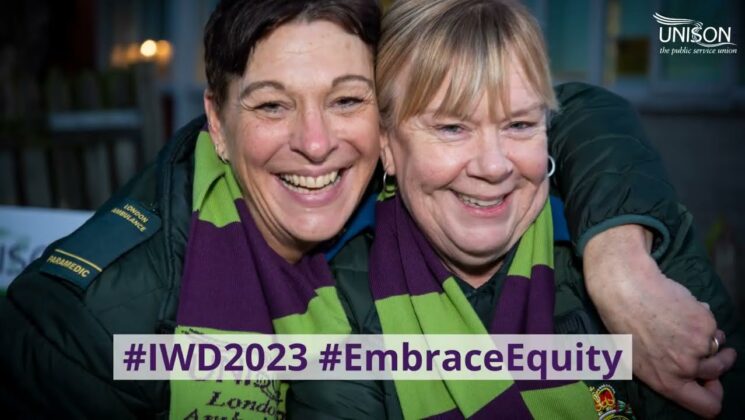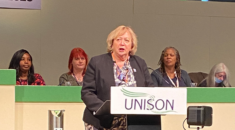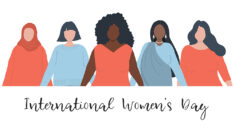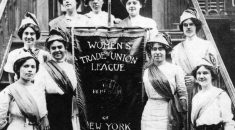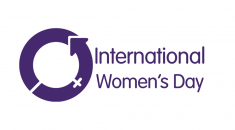International Women’s Day takes place on 8 March this year, and as the UK’s biggest women’s organisation, UNISON takes it seriously.
Women have always been central to trade unions and the fight for a more equal society.
On International Women’s Day (IWD), and every other day, we celebrate the incredible contributions of women in the workforce and the invaluable role they play in building a fairer world. We stand in solidarity with all working women and will continue to fight for gender equality in the workplace.
We’ll work together for a gender equal world. A world free of bias, stereotypes, and discrimination. A world that’s diverse, equitable, and inclusive. A world where difference is valued and celebrated. Together we can forge women’s equality. Collectively we can all #EmbraceEquity.
This year’s International Women’s Day theme is “Embrace Equity”. The aim of the IWD 2023 #EmbraceEquity campaign theme is to get the world talking about Why equal opportunities aren’t enough. People start from different places, so true inclusion and belonging require equitable action.
IWD is raising awareness that we can all truly embrace equity and it is not just something we say or write about and instead it is something we need to think about, know, value, and embrace where each one of us can actively support and embrace equity within our own sphere of influence.
The words equity and equality are often used interchangeably. However, there is a difference between equity and equality – it is important to understand, acknowledge and value the difference. Equality means each individual or group of people is given the same resources of opportunities. Whereas, Equity recognises that each person has different circumstances, and allocates the exact resources and opportunities needed to reach an equal outcome.

